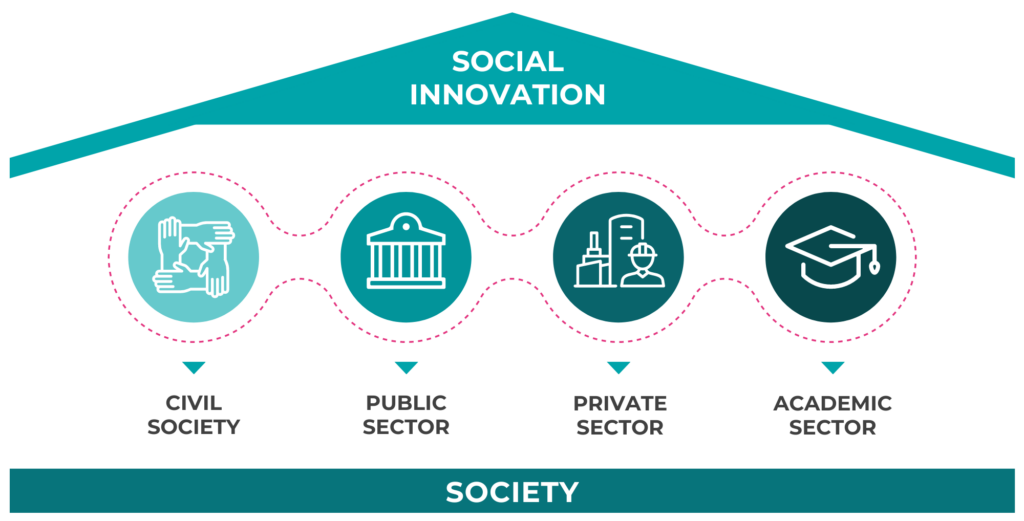social innovation


Social innovation refers to the design and implementation of new solutions that imply conceptual, process, product, or organisational change, which ultimately aim to improve the welfare and wellbeing of individuals and communities.
– OECD
main characteristics
Social innovation complex, which is why here are a few key concepts to help you recognize it better.
social impact
It is the impact that is created by processes, services and products that aim at solving challenges of the society.
innovation
It is always a new solution, approach or system in a particular place and time.
collaboration
Best results are ideally achieved in collaboration of civic society, private and public sectors.
sustainability
The solutions are lasting, regenerative and resilient.
involvement
Every member of society is involved in creation and implementation of new significant and useful solutions.
context
Every social innovation depends on the place, time, involved actors and their needs. At the same time - it can take place just about anywhere and any time.

in the ideal world, social innovation is a part of everyday life
✓ problems of society are solved with targeted data-based solutions in collaboration of different sectors
✓ there is available financial, information and administrative support of the public sector for driving social innovation
✓ nongovernmental organizations that are experts in needs and challenges of particular groups of society are recognized and their opinion – valued
✓ development of knowledge and skills about the possibilities within social innovations are included within all layers of education
✓ research about social innovation is one of pillars for creating sustainable and data-driven solutions
examples
Social innovation is a solution that is relevant in particular time and place. Here you will see recent as well as past examples.


You will find more about getting involved in social innovation in this practice guide or our section of useful resources.
Latest articles











